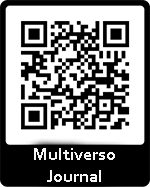The political autonomy of the Colombian north-continental Caribbean
DOI:
https://doi.org/10.46502/issn.2792-3681/2022.3.1Keywords:
political autonomy, independence, historical region, Colombian northwestern Caribbean, right to self-determination of peoples.Abstract
As in much of Latin America, the search for more and better spaces for political and territorial autonomy has been the response in Colombia to the Andean historical centralism that has reduced the advancement of the multidimensional capacities of different territorial entities that, yesterday and today, aspire to leverage their integral regional development. Consequently, the objective of this article is to analyze and discuss the transcendence and meaning of the construction of the political autonomy of the Colombian north-continental Caribbean, a historical region in its own right that can legitimately aspire to the right to self-determination of its communities. Methodologically it is documentary research close to dialectical hermeneutics. The sources interpreted allow us to conclude that independence, that is, the radical political autonomy of a historical region with a certain territoriality and particular identity in the world, which distances it or about it from other human collectivities, does not have to be a dramatic event, much more when world history in its dialectical movement shows us that political formations such as the State, Empires, nations or even civilizations, are transformed, changed or perished depending on a multiplicity of political, economic, geographical or climatic factors, among others.
References
Asamblea General de las Naciones Uniadas. (12 de mayo de 1966). Pacto Internacional de Derechos Civiles y Políticos. Obtenido de https://www.ohchr.org/sites/default/files/ccpr_SP.pdf
Calvano Cabezas, L. (2018). Contrato social y modernidad política en Colombia. Cabimas: Fondo editorial de la UNERBM.
Cardozo Galué, G. (1989). Maracaibo y su Región histórica. El Circuito Agroexportador 1830-1860. Maracaibo: Editorial de la Universidad del Zulia.
INVEMAR. (2007). Informe del Estado de los Ambientes Marinos y Costeros en Colombia: Año 2006. Santa Marta: Serie de Publicaciones Periódicas No. 8.
Lobo Alvis, A. H. (2018). Políticas culturales en Colombia. La experiencia de la región Caribe. Cabimas: Fondo editorial de la UNERMB.
Martínez Miguélez, M. (2004). Ciencia y arte en la metodología cualitativa. México DF.: Trillas.
Morales, Y., Martínez, R., Castaño, L., & Parra, R. (2019). Relecturas del Estadi ¿reificación del orden sociopolítico o estructura auténticas de poder? Revista de filosofía, 39(93), 20-39.
Múnera, A. (1997). El Caribe colombiano en la república andina. Revista ecuatoriana de historia, 10, 63-82.
Nader Orfale, R. (2018). Las luchas por la autonomía política de las entidades territoriales: el derechode los pueblos o el Estado garante de derechos. Advocatus, 15(31), 39-45.
Reales Utria, A. (2008). El país caribe de Colombia. Barranquilla: Editorial Galume.
Ritzer, G. (2005). Teoría sociologica clásica. Madrid: McGrawHill.
Rivas Quintero, A. (2008). El Estado y Estructura y Valor de sus Instituciones. Valencia: Universidad de Carabobo.
Sofia, P., & Thressiamma Panikulangara, P. (2009). Origen y desarrollo de la Constitución de la India. Un ejemplo de equilibrio entre tradición religiosa y laicismo. Frónesis. Revista de Filosofía Jurídica, Social y Política, 16(01), 26-39.
Solano de las Aguas, S. (2010). De ciudad portuaria el puerto como espacio polifuncional. Los puertos del Gran Caribe en el Siglo XIX. Revista de historia regional y local, 02(04), 95-112.
Teun A, v. D. (198). Prólogo El análisis del discurso social. En I. Vasilachis de Gialdino, La construcción de representaciones sociales (págs. 15-19). Barcelona: Gedisa editorial.
Vallès, J. M. (2000). Ciencia Política Una introducción. Barcelona: Ariel Ciencia Política.
Villamuera, J. (09 de febrero de 2021). El orden mundial. Obtenido de ¿Qué es el derecho de autodeterminación?: https://elordenmundial.com/que-es-derecho-autodeterminacion/
Villasmil Espinoza, J., & Jiménez Idrovo, Í. (2022). El discurso de la unidad americana en tres tiempos. Independencia, organización nacional y antiimperialismo. Maracaibo: Ediciones Clío/ Academia de la historia del estado Zulia.
Published
How to Cite
Issue
Section
License
Copyright (c) 2022 Jorge Luís Horta Orozco

This work is licensed under a Creative Commons Attribution 4.0 International License.
The authors who publish in this journal agree to the following terms:
The authors retain copyright and guarantee the journal the right to be the first publication where the article is presented, which is published under a Creative Commons Attribution License, which allows others to share the work prior to acknowledgment of the authorship of the article. work and initial publication in this journal.
Authors may separately enter into additional agreements for non-exclusive distribution of the version of the work published in the journal (for example, placing it in an institutional repository or publishing it in a book), with an acknowledgment of its initial publication in this journal.



















